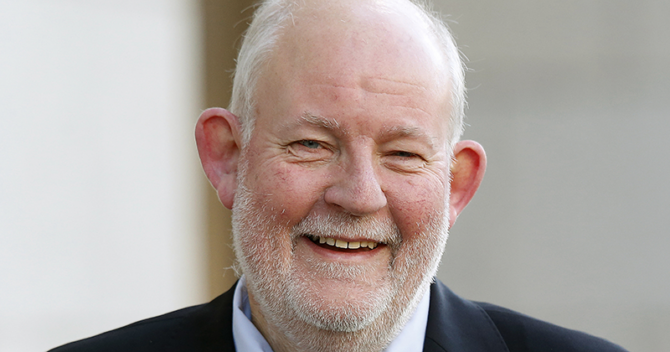Religious education should be renamed Religion, Beliefs and Values and parents must not be allowed to remove pupils from those lessons, a new report recommends.
The law surrounding RE in schools is “outdated” and “hinders” the subject from being a relevant and highly respected academic one, it states.
Former education secretary Charles Clarke (pictured) and sociologist of religion Linda Woodhead have followed up their 2015 assessment of RE with a new report, published today, which says Ofsted should ensure that “RBV” is taught in all schools.
But secularists have criticised the report as more “timid” than its predecessor, because it says existing faith schools should be allowed to select pupils based on faith. Moreover, it does not recommend that the legally required daily act of worship – which is rarely checked upon – should be abolished.
Piling on the criticism further, the Catholic Church says the recommendations would reduce the study of religion to a sociological subject, instead of a properly theological one.
The report’s authors recommend that RE be renamed Religion, Beliefs and Values, because this allows for the exploration of the “inner diversity” of each religion, and accounts for humanist beliefs.

The current legal right of parents to withdraw their children from RE and any associated school trips should also be withdrawn, says the report, because it contributes to the subject being regarded as less academic.
Meanwhile, the RBV curriculum should be determined nationally rather than locally, as it is currently. A newly created “advisory council on RBV” nominated by the education secretary should comprise RE professionals and lay out a vision for the content of the subject.
But Marcus Stock, lead bishop for religious education at the Catholic Education Service, said the proposal amounted to the state “imposing” a national RE curriculum that is “reductionist” and “exclusively sociological” on Catholic schools.
Catholic schools already take RE seriously as a “rigorous, theological academic subject”, he added.
The report also says the requirement for schools to teach RE to key stage 4 should also be “modified” so that pupils have to study “contemporary religious and cultural values” up to year 11. This step was taken, claim the authors, following the publication in September of a state-of-the-nation report that found that a quarter of all schools surveyed did not offer a weekly RE lesson, with secondary academies the worst offenders.
The state is imposing a national RE curriculum that is exclusively sociological
But they stopped short of calling for an end to the current legal requirement on schools to provide an act of “daily collective worship wholly or mainly of a broadly Christian character”.
Instead, schools should take part in “a regular assembly” or act of collective worship that is “in keeping with the values and ethos of the school”.
The position marks a retreat from the authors’ 2015 report, which called for daily worship to be abolished. Clarke and Woodhead admit the retreat was made “after it became clear that important elements of Church of England opinion are strongly opposed to removing the statutory requirement”.
Humanists UK, which campaigns against faith schools, blasted the pair for the U-turn.
Andrew Copson, chief executive of Humanists UK, said the recommendation should not have been withdrawn just because the CofE “didn’t like it”.
The fact that the authors suggest faith schools should be allowed to select pupils based on their religion, but then later say faith institutions should nevertheless seek to reduce the number of schools doing so, was labelled “bizarre” by Copson.
“Far too many concessions are made to the vested interests of religious organisations for this to be a report we can be enthusiastic about,” he said.
Finally, Clarke and Woodhead said Ofsted should ensure that all schools fulfil their duty to teach the RBV curriculum.
The report comes as Amanda Spielman, chief inspector of Ofsted, has become increasingly vocal about the need to clamp down on illegal religious schools, and has called for the Church of England and other bodies to support Ofsted in inspecting more out-of-school educational provision where pupils may be exposed to extremist ideologies.
The government has also recently dealt a blow to the Catholic Church by reneging on its proposal to lift the cap on faith-based admissions to its schools.
Clarke’s and Woodhead’s new report, like its 2015 predecessor, arose from the Westminster Faith Debates series and the Religion and Society Research programme funded by the Arts and Humanities Research Council and the Economic and Social Research Council.








Your thoughts